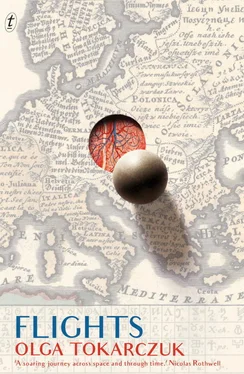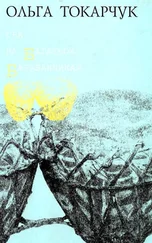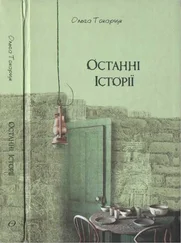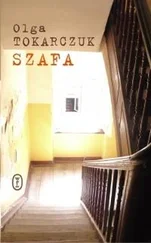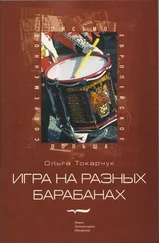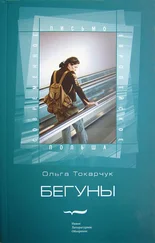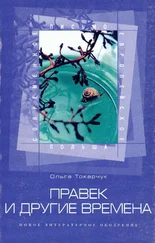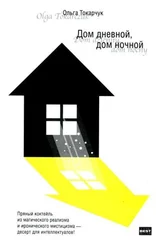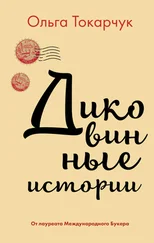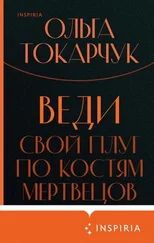Dark matter – that was what he worked on. It’s a thing which we know exists, but without being able to access it, with any instruments. The evidence of its existence arises out of complicated calculations, mathematical results. All signs point to it occupying some three-quarters of the universe. Our matter, clear matter, the matter with which we are familiar and which comprises our cosmos, is inordinately scarcer. Dark matter, meanwhile, is located everywhere, says this man in the sock with the hole in it – right here, all around us. He gazes out the window, indicating with his eyes the blindingly bright clouds beneath us: ‘It’s out there, too. Everywhere. The worst part is we don’t know what it is. Or why.’ I wanted to immediately put him in touch with those climatologists who were flying to their conference in Montreal. I got up and glanced around for them, but then right away I realized, of course, that that was not this flight.
At the airport, a big ad on a glass wall all-knowingly asserts:
МОБИЛЬНОСТЬ СТАНОВИТСЯ РЕАЛЬНОСTЮ.
Mobility is reality.
Let us stress that it is merely an ad for mobile phones.
Over the world at night hell rises. The first thing that happens is it disfigures space; it makes everything more cramped and more massive and unscaleable. Details disappear and objects lose their features, becoming squat and indistinct; how strange that by day they may be spoken of as ‘beautiful’ or ‘useful’; now they look like shapeless bodies: hard to guess what they’d be for. Everything is hypothetical in hell. All that daytime heterogeneity of form, the presence of colours, shades, reveals itself to be utterly in vain – what purpose could possibly be served by beige upholstery, by floral wallpaper, by tassels? What difference does green make to a dress slung over the back of a chair? It’s difficult to understand the covetous gaze that fell upon it as it clung to its hanger in the shop window. There are no buttons or hooks or clasps now; fingers in the dark find only vague bulges, rough patches, lumps of hard matter.
The next thing hell does is drag you out of sleep. You can kick and scream; hell is implacable. Sometimes it provides disturbing images, frightening or mocking – a decapitated head, a beloved body covered in blood, human bones in ashes – yes, yes, hell likes to shock. But more often than not it awakes without standing on ceremony – your eyes open onto darkness, launching a stream of consciousness; your gaze, aimed at nothing, is its advance guard. The nocturnal brain is a Penelope unravelling the cloth of meaning diligently woven during the day. Sometimes it’s a single thread, sometimes more; complex designs break down into prime factors – warp and weft; weft falls by the wayside, and only straight parallel lines remain, the barcode of the world.
Then you realize: night gives the world back its natural, original appearance, without sugar-coating it; day is a flight of fancy, light a slight exception, an oversight, a disruption of the order. The world in fact is dark, almost black. Motionless and cold.
She sits straight up in their bed, tickled by beads of sweat between her breasts. Her nightgown sticks to her body like skin about to be shed. She strains to hear in the darkness and catches the quiet whimpering that comes from Petya’s room. For a moment she tries with her feet to find her slippers, but then she gives up. She’ll run barefoot to her son. Beside her she sees the murky outline of a person as it budges and sighs.
‘What?’ murmurs the man, still asleep, falling back into his pillow.
‘Nothing. Petya.’
She turns on a little lamp in the child’s room and right away sees his eyes. They’re wide open, looking at her from inside the painstaking black cavities the light carves into his face. She puts her hand to his forehead, instinctively, as always. His forehead isn’t hot, but it is sweaty, clammy to the touch. Carefully she pulls the boy up into a sitting position and massages his back. Her son’s head falls onto her shoulder; Annushka can smell his sweat, recognizing pain in it, a thing she’s learned to do: Petya smells different when he is in pain.
‘Can you make it till morning?’ she whispers, softly, but then she quickly realizes what a stupid question it is. Why should he suffer until morning? She reaches for the pills on the nightstand, pops one out and puts it in his mouth. Then a glass of warmish water. The boy drinks, chokes, so a little while later she gives him another sip, with greater caution. The pill will take effect any minute now, so she lays his limp body on its right side, tucking his knees up under his belly, thinking he’ll be most comfortable this way. She lies down beside him on the edge of the bed and rests her head against his bony back, listening to the air turn into breath as it enters his lungs and is released into the night. She waits until this process becomes rhythmic, easy, automatic, and then she rises, gingerly, and tiptoes back to bed. She’d rather sleep in Petya’s room, as she had until her husband had come back. That had been better, her mind had been easier, falling asleep and waking up facing her child. Not folding out that double bed each evening: let it be deserted. But a husband is a husband.
He’d come back four months earlier, after two years away. He’d come back in civilian clothes, the same ones he’d been wearing when he’d left, now out of fashion, though you could tell they’d barely been worn. She’d smelled them – they hadn’t smelled like anything, maybe very slightly of damp, that smell of stillness, a shut-up storehouse.
He’d come back different – she’d noticed right away – and so far, he’d stayed different. That first night she’d made an inspection of his body – it was also different, harder, bigger, more muscular, but oddly weak.
She’d felt the scar on his shoulder and his scalp, his hair obviously getting thinner and grey. His hands had become massive, his fingers thicker, as though from physical labour. She had laid them on her bare breasts, but they’d remained uncertain. She’d tried her own hand at persuading him, but he’d continued to lie there so quietly, breathing so shallowly, that it had made her feel ashamed.
At night he’d wake up with a kind of hoarse, furious groan, sit up in the dark, and then a moment later get up and go over to the spirits shelf and pour himself a shot. Then his breath would smell like fruit, like apples. And then he’d say, ‘Put your hands on me, touch me.’
‘Tell me what it was like there, you’ll feel better, tell me,’ she said, whispering into his ear, tempting with her hot breath.
But he didn’t tell her anything.
While she would deal with Petya, he would walk the apartment in his striped pyjamas, drinking strong black coffee, looking out the window onto the apartment blocks. Then he’d look in on the boy, crouching down beside him sometimes, trying to make contact. And then he’d turn on the TV and draw the yellow curtains, making the daylight sickly, dense and fevered. He didn’t get dressed until around noon, when Petya’s nurse was about to come, and even then he didn’t always. Sometimes he’d just close the door. The sound of the TV would grow fainter, become a rankling rumbling, a summons to a newly senseless world.
The money came in like clockwork, every month. And in fact it was enough – plenty for Petya’s medications, for a better, barely used wheelchair, for a nurse.
Today Annushka will not be dealing with the boy, she has today off. Her mother-in-law will be here soon, though she doesn’t know which of them she’s really coming to watch, her son or her grandson, which of them she’ll fuss the most over. She’ll lay her plaid plastic bag down by the door and extract from it her nylon housecoat and her slippers – her home uniform. She’ll look in on her son, ask him a question, and he’ll respond, without taking his eyes off the TV: yes or no. Nothing else, no point waiting, so she’ll go to her grandson. He needs to be washed and fed; his sheets, drenched in sweat and urine, need to be changed; he needs his medications. Then the laundry needs to be put in, and their lunch needs to be made.
Читать дальше
